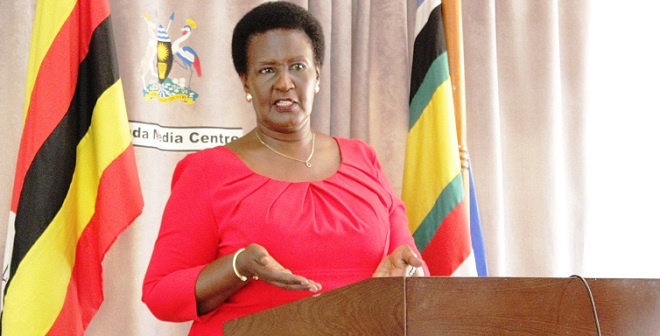China’s rapid growth has puzzled many people, including economists.
How could a nation with 1.4 billion people transform itself relatively suddenly from a vastly impoverished agricultural land into a formidable industrial powerhouse when so many tiny nations have been unable to do so despite their more favorable social-economic conditions?
The short answer is that China has rediscovered the “secret recipe” of the Industrial Revolution. But what is the secret recipe, and why hasn’t Uganda find it sooner?
But Uganda’s Minister for Trade Amelia Kyambadde insists that President Museveni’s government has done enough studies and they have figured out a way forward to replicating the Chinese model in Africa.
Ms. Kyambadde explains that Uganda should take advantage of her location and become Africa’s China by becoming an industrialized economy and export to the region and continent.
While speaking at the ten-year celebration of Awie Logistics Company at Freedom City along Entebbe Road on Saturday evening, Ms. Kyambadde appealed to hundreds of traders to stop importing petty goods.
“The government subsidised on the importation of machinery because we want to add value to our exports and produce most goods like clothes, shoes among others,” Kyambadde stressed.
She says that the government will not reduce taxes for most imported goods because the government wants traders and business people to be innovative and produce goods locally.
The celebration attracted over 1,500 traders in Kampala who mostly import from China through Awie.
Ms Kyambadde warned traders that if they do not think and plan to produce goods locally, the government will further hike the taxes to discourage them from importing petty and used goods.
Awie’s Chief Executive Officer David Lee Lubega thanked the traders that have worked with the company and assured them of a smooth working relationship with them for many years.
“I want to thank the traders whom we have closely worked with for many years and I just want to assure them that we shall continue to serve them smoothly,” Mr. Lee asserted.
Intra-African Trade
Uganda is a landlocked country and staring at a future where it will continue to depend on its neighbours if the infrastructure plans pay off in boosting industrialisation. Potential export markets include Kenya, South Sudan, and Congo among others. At the moment, Uganda does a lot of informal trade ties with South Sudan but there is a considerable lack of genuine policy direction to boost those trade directions. Uganda, as part of East African Community (EAC), has been looking to tap the regional market to boost trade.
A point of concern, however, remains the inability to grow exports as fast as imports, which is creating a trade imbalance yet there is African market to tap.
Unemployment was an important sound-bite for almost every presidential candidate in the general elections conducted in February 2016.
Uganda’s rising population is producing a generation of unemployable, underemployed or unskilled people posing a policy challenge to the government.
According to the recently released National Population and Housing Census 2014, – 71.1 per cent or 24.5million – is engaged in agricultural production that specifically targets growing of food for consumption.
But it is worthy to note that Uganda largely depends on agriculture, but most of the entrepreneurs in this area limit themselves to elementary trading in agricultural produce.
Achievable dream?
President Museveni last March during the newly elected NRM MPs Retreat at Kyankwanzi said that his government has been handling many of the strategic bottlenecks: ideological disorientation, a weak State, emancipating the private sector, the human resource development (education and health), modernizing the infrastructure, integrating the fragmented markets, etc, etc.

Hence, they have got a better base than ever before. They are, therefore, in a position to tackle, step by step, the residual problems and convert Uganda into a middle-income country by 2019 and an upper middle-income country by 2040.
Authored by Isaac Kisubi











